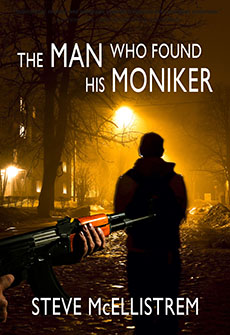I’ve published 7 novels now and I’m sometimes asked which is my favorite or which one is the best. That’s sort of like asking a parent which child is the favorite. For most parents, that’s a question they’re unlikely to answer.
With books, there’s no one to offend. And yet, it may not be possible for me to ascertain which of my books is my favorite or the best. The four books in my Susquehanna Virus science fiction series – The Devereaux Dilemma, The Devereaux Disaster, The Devereaux Decision and The Devereaux Deity – each have their strengths and weaknesses.
They really should be read as one long novel, each informing the following one, culminating in a transcendent moment of ecstasy at the conclusion of the fourth tome. Okay, perhaps that’s a bit strong. But the point is that each has segments I think are great and each has sections I could probably have written better.
At the time I completed them, I had written them as well as I could have at that moment in my life. I could not have made them any better without hanging onto them for years and revisiting them every so often, like Leonardo da Vinci and his Mona Lisa.
They explore the near future, when we will have genetically modified humans and nanotechnology inside our bodies, when a virus will threaten our species, when our politics will be just as dysfunctional as they are today, when our environment and wealth inequality are still issues. They do not predict the future so much as they examine our present course and issue a warning about where we’re heading.
There are no aliens, no warp drives, no wormholes – just a steady increase in our technological abilities to a point where our very survival becomes at risk. I conducted a great deal of research for those novels and I learned a lot about what we might encounter, though it’s impossible to know for certain what challenges we will face.
And yet a lot of people won’t read sci-fi. They love the movies (Star Wars and Star Trek and Avatar) but they often don’t want to read that genre.
So I have written three other novels. One – Emerging Man – took me nearly 25 years to complete. It’s a story of a man approaching 40 who returns to the small town where he grew up, befriending and assisting an old sculptor, learning life lessons along the way. This was truly a labor of love, one that I revised and rewrote many times, but is it my most-loved book?
I’m not sure I can say that. It certainly took the most effort, just as The Man Who Found His Moniker took the least amount. In that book, a man who has endured a tragedy in his past (related to a school shooting), experiences visions that lead him to believe he is being given the opportunity to stop another one.
For some reason, that book almost wrote itself, the subject matter and the main character freeing themselves from my imagination almost as quickly as I could get the words on the page. It was as if the ideas were trapped inside my brain, just waiting for me to release the floodgates and send them rushing into the world. So maybe that should be my favorite book.
Or perhaps it ought to be my werewolf book – Hound of God – which I wrote as a challenge to myself, to see if I could write something outside my comfort zone. I was pleased with it when I finished the work, pleasantly surprised that I could succeed in a genre I was not that comfortable tackling, but can I say it’s my favorite book?
Ultimately it doesn’t matter what I think. Writing is subjective. So is reading. For every beloved book, you can find people who hated it (if you get a large enough sample of readers). So I can’t say which is my favorite. But I don’t have to. That’s a job for my readers.
